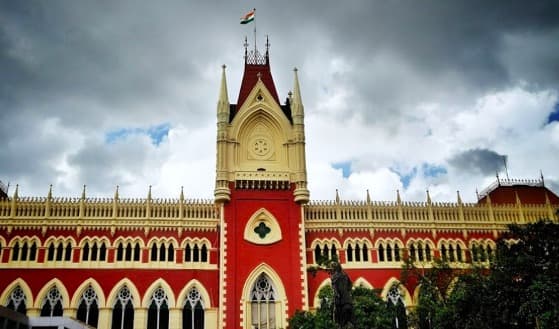
The Calcutta High Court on Wednesday upheld the life sentence of a Pakistani terrorist belonging to the terrorist organization Al-Badar, who entered Indian territory illegally through Bangladesh and was on his way to Srinagar to carry out terrorist activities.
On March 19, 2009, the convict was arrested by the Special Task Force (STF) in Kolkata after being intercepted and discovered to be in possession of explosive substances as well as a forged driving licence and Voter ID card.
On March 15, 2021, Additional Sessions Judge, 1st Fast Track Court, Calcutta had convicted the accused for waging war against the Government of India under Section 121 of the Indian Penal Code (IPC), as well as other provisions of the IPC, the Foreigners Act, and the Explosive Substance Act. The instant appeal had been filed against this order.
Upon a perusal of the rival submissions, a Division Bench comprising of Justice Debangsu Basak and Justice Md. Shabbar Rashidi observed, “A person of foreign origin entered Indian Territory without valid travel documents and carrying highly explosive substance and objectionable literature and proceeding to a substantially terror prone zone of the country is surely not expected to be moving for charity. The circumstances of the case suggest that his actions were part of an attempt and a conspiracy to wage war against the Government of India.”
The Court noted that the convict had entered and remained in India without the necessary documents required for such entry or for such stay. He was also found in possession of a plastic container containing a semisolid material, which was later examined and discovered to be a mixture of ammonium nitrate and petroleum hydrocarbon, an established high explosive substance.
The Court added, “The appellant has provided no explanation for his possession of a highly explosive substance, which is also prohibited. Such possession was obviously intended to endanger human life and property in Indian Territory, and it was carried in a suspicious manner in a bag.”
The Division Bench also noted that the convict initially disguised himself as an Indian National named Md. Jamal from the District of Murshidabad, but during interrogation he identified himself as Sahahbaz Ismail from the District of Dera Gazi Khan in Pakistan.
As a result, the Court upheld the order of conviction and the sentence of life imprisonment imposed by the Sessions Court.




